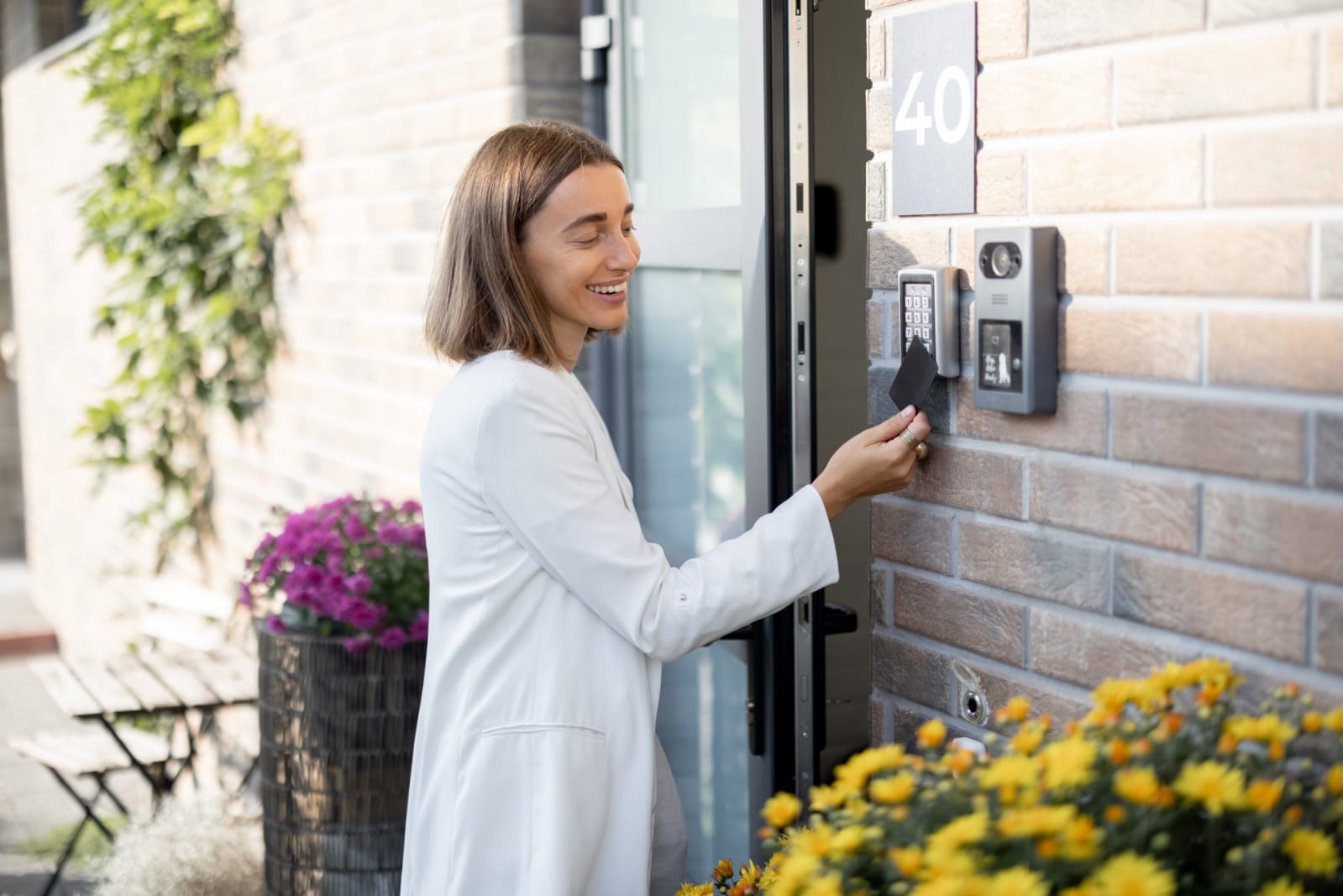Security guards play a vital role in maintaining physical security and access control in various organizations and facilities. They are often the first line of defense against threats to people and property. Some of the key duties and responsibilities of security guards within the context of physical access security systems include the following.
Access Control
One of the primary duties of security guards is to control access to restricted areas and ensure that only authorized personnel are allowed entry. They verify the identity and access privileges of employees, visitors, and contractors by carefully checking credentials, access cards, authorization letters, or other documents against an approved access list. Guards operating security booths may use access control systems from Genetec and maintain visitor logs. By actively controlling and monitoring access, guards play a pivotal role in permitting entry based on authentication and authorization while denying entry to unauthorized individuals. This enhances security and prevents breaches.
Monitoring and Surveillance
Security guards continuously monitor facilities, perimeters, and critical areas through patrols and surveillance equipment, such as CCTV cameras and alarm systems. This enables them to detect security breaches, suspicious activities, and safety hazards. They pay close attention to restricted zones and entry points to ensure no unauthorized access takes place.
Incident Response
Guards are often required to be the first responders to security incidents, such as trespassing, theft, vandalism, and safety hazards. They undergo training to assess a situation, start emergency protocols, and let the appropriate authorities know of the incident. An adept security guard can help mitigate damages from security incidents through timely intervention.
Access Point Enforcement
Security personnel enforce protocols at access points, such as opening/closing specific entrances at scheduled times, directing vehicular traffic, securing delivery areas, restricting access to authorized personnel only, and more. They ensure proper control procedures are followed at all physical security perimeters and entry points.
Escorting/Monitoring Visitors
Guards may be assigned to accompany and monitor visitors in restricted areas to prevent unauthorized access. They ensure visitors have proper credentials, restrict access to only necessary areas, maintain logs, and escort visitors to appropriate meeting points. This helps control visitor access, as per policy.
Supporting Physical Security Systems
From manning security booths to monitoring video feeds and maintaining visitor logs, guards support various physical security systems in place. They follow protocols for operating technical security equipment and notify technicians of any malfunctions. With proper usage, physical security systems become more effective.
Securing Assets and Vital Areas
Security guards protect sensitive business information, critical infrastructure, expensive assets, and vital areas such as IT servers, R&D labs, and storage units. They are also posted at parking lots, loading docks, and other vulnerable areas to prevent theft and misuse.
Emergency Response
Guards are trained in emergency response protocols related to security, such as lockdowns, evacuations, active shooter situations, medical emergencies, and more. They may coordinate with law enforcement during response procedures.
Reporting and Recordkeeping
Accurate reporting and recordkeeping of security-related incidents, access control activities, and surveillance data are crucial. Security guards maintain logs, generate incident reports, document inspections, and submit timely status updates to stakeholders.
Proper training, oversight, and leverage of physical security systems enable security guards to perform the above duties effectively in alignment with organizational security objectives. With increasing technological disruption, the role of guards is evolving toward more strategic responsibilities. However, human oversight remains indispensable. The unique discernment and situational awareness human guards bring continue to be a vital component of the overall physical security apparatus.

